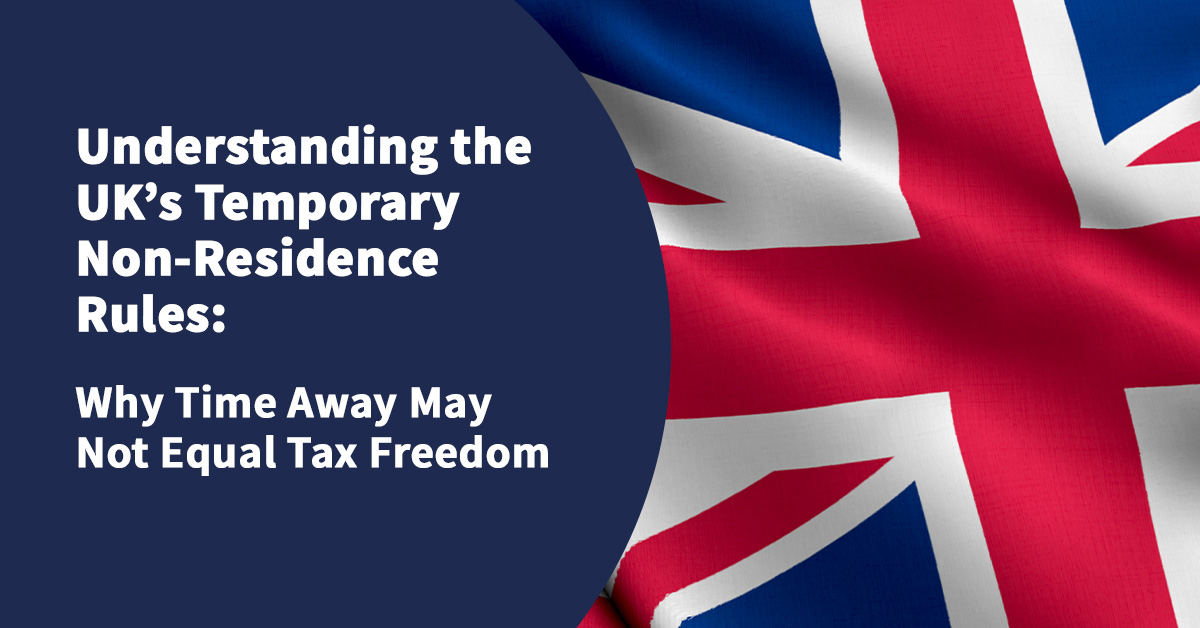The rise of remote work has made it easier than ever to live the “digital nomad” lifestyle. Working from a beach in the Seychelles one month and a co-working hub in Lisbon the next. With laptops, Wi-Fi, and global mobility, you really can choose your office view.
But here’s the reality check: while you can be a digital nomad, you cannot be a tax nomad. Every country has tax rules, and ignoring them can have expensive, long-term consequences.
Why You Can’t Be a “Tax Nomad”
Unlike work, taxation isn’t borderless. Each country has its own framework for taxing individuals, usually based on residency or source of income. Simply moving from place to place doesn’t mean you’ve escaped the reach of the tax authorities.
- Residency rules: Most jurisdictions determine tax residency on how many days you spend in the country or whether you have a permanent home or ties there.
- Source-based taxation: Even if you’re not a resident, income earned from within a country (such as rental income, dividends, or business profits) may still be taxable there.
- Double Taxation Agreements (DTAs): These treaties are designed to prevent the same income from being taxed twice but they don’t eliminate tax altogether.
Common Misconceptions
“I don’t stay in any one country long enough, so I don’t pay tax anywhere.”
In practice, most countries will try to pin down tax residency if you’re there more than a few months. Some may even apply residency by default if you’re a citizen or if your family lives there.
“I only need to worry about tax where my company is based.”
Wrong. Where you live and work can create a taxable presence, even if your employer or business is registered elsewhere.
“I’ll just choose a tax-free country.”
Countries like Dubai or Monaco can offer attractive tax regimes, but you usually need to establish real ties, such as a residence permit, local address, or physical presence to be considered tax resident there.
When Two Countries Claim You: The “Tie-Breaker” Rules
Sometimes, despite your best efforts, you can end up being treated as tax resident in two countries at the same time. This can happen if:
- You spend significant time in both,
- You have a home available in more than one place, or
- You split work and family ties between jurisdictions.
To resolve this, Double Taxation Agreements (DTAs) often include what are known as tie-breaker rules. These are designed to decide which country gets the right to tax you as a resident. The tests usually follow a hierarchy:
- Permanent home: Where is your main home?
- Centre of vital interests: Where are your closest personal and economic ties (family, work, business, social connections)?
- Habitual abode: Where do you spend the most time overall?
- Nationality: If still unclear, your nationality can be decisive.
- Mutual agreement: If none of the above settles it, the two countries’ tax authorities will negotiate.
Why this matters
The tie-breaker rules don’t let you “opt out” of tax altogether, they simply assign primary taxing rights to one country. You may still owe some tax in the other, but credits and exemptions should prevent double taxation.
Can You Avoid Tax if You Live on a Boat?
Some digital nomads take their lifestyle one step further and move onto a boat. The idea is appealing: sail between ports, spend time in international waters, and avoid being tied to any country. But while your home may float, your tax obligations don’t.
- Time in port still counts. If you spend 183 days docked in a country like Spain, you’ll likely be classed as tax resident there, even if you never set foot on land.
- Your passport matters. Countries such as the US tax based on citizenship, not residency. Simply living on a yacht won’t exempt you.
- Authorities look for connections. Where do you bank? Where is your family? Where is the boat registered? These ties are often enough to establish tax residency.
- No one is “stateless” for tax. Even if you constantly move, one or more jurisdictions will claim taxing rights based on residency, citizenship, or income sources.
The reality
Living on a boat might change your view each morning, but it doesn’t free you from the reach of tax authorities. If anything, it makes careful planning more important, because your lifestyle will invite closer scrutiny.
Why It Matters
- Failing to clarify your tax status can lead to:
- Unexpected tax bills (sometimes years later) with interest and penalties.
- Double taxation if you don’t make use of available treaties.
- Stress and uncertainty about whether you’re compliant.
Practical Steps for Digital Nomads
If you’re living a borderless lifestyle, it’s essential to make sure your tax situation isn’t. Here’s how:
- Track your days. Keep a log of where you spend time. Many apps can help.
- Clarify your home base. Establish a tax residency where the rules are favourable and where you can realistically maintain ties.
- Check treaties. Understand which Double Taxation Agreements apply to you.
- Structure income smartly. Offshore bonds, trusts, or corporate structures may provide flexibility but only if used correctly and compliantly.
- Seek advice. Cross-border planning is complex. What works for one person could be disastrous for another.
FAQs: Digital Nomads
Yes. Even if you move between countries, you’ll usually be considered tax resident somewhere, based on days spent, ties, or citizenship.
No. Even if you live on a yacht, ports where you spend time and your passport country can still establish tax residency.
There’s no one-size-fits-all. Popular choices include Dubai, Portugal (NHR regime, until recently), and Malta but each requires establishing real residency.
Not necessarily. Many countries have secondary tests (family, property, centre of vital interests) to determine residency, even if you stay under 183 days.
Final Word
Being a digital nomad gives you freedom. But don’t confuse lifestyle flexibility with tax invisibility. Governments may not care where you log in from, but they care very much where you are and where your income comes from.
The truth is simple: you can be a digital nomad, but not a tax nomad.
Benefit from comprehensive, integrated, and objective advice.
Let’s discuss your specific needs and how I can help you meet your objectives
Let’s start the conversation
Online enquiry form
Related posts
 Published On: November 10, 2025|5.3 min read|
Published On: November 10, 2025|5.3 min read|How to Choose the Right Financial Adviser Before Moving Abroad (UK Residents Planning to Relocate)
If you’re planning to relocate abroad, find out how a UK-qualified financial adviser can help you prepare. Learn about tax residency, Double Taxation Agreements (DTAs), the Statutory Residence Test (SRT), offshore accounts, and how to structure assets before you leave.
Read more
 Published On: November 7, 2025|6 min read|
Published On: November 7, 2025|6 min read|Should You Sell or Keep Your UK Property When Moving Abroad?
For many people leaving the UK, one of the biggest decisions isn’t what to pack, it’s what to do with the family home or investment property. Should you sell before you leave, or keep it and rent it out while you live abroad?
Read more
 Published On: November 3, 2025|4.1 min read|
Published On: November 3, 2025|4.1 min read|Understanding the UK’s Temporary Non-Residence Rules: Why Time Away May Not Equal Tax Freedom
Understand the UK’s Temporary Non-Residence Rules (TNR) and how they affect capital gains, pensions, and offshore assets for expatriates. Learn how timing, residency status, and careful planning can help avoid unexpected UK tax bills when moving abroad or returning home.
Read more















